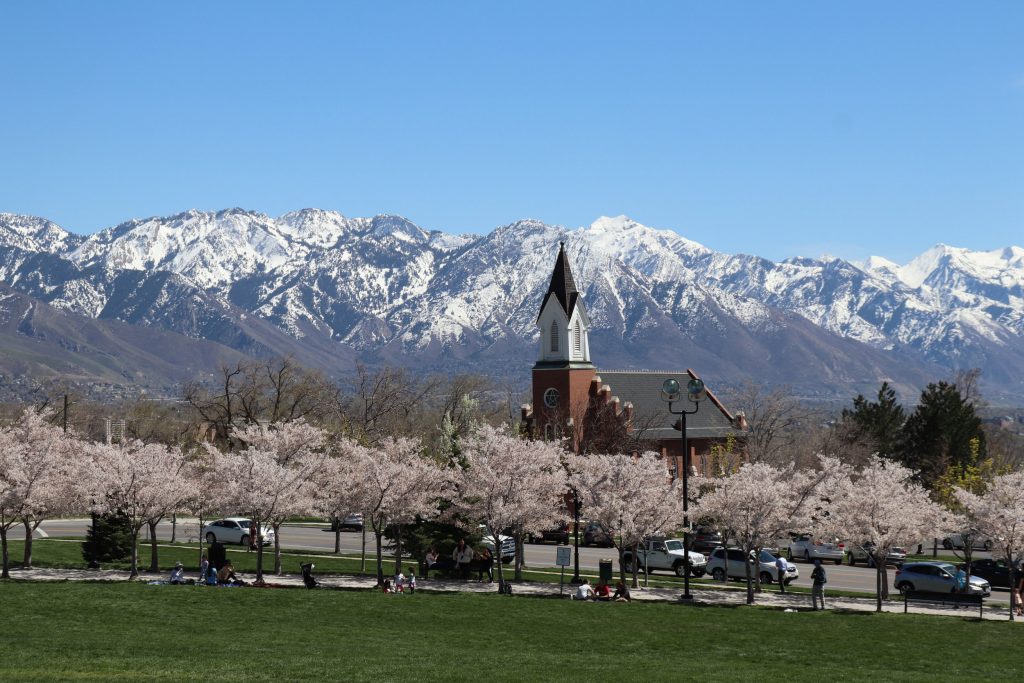
Today, let us reaffirm our commitment to sustain our environment while promoting opportunities for Utahns that will continue to make Utah the greatest state in the nation to live and work in.
2019 clean air legislation:
-
SB 21, Sunset Reauthorization – Air Conservation Act, extends the repeal date of the Air Conservation Act.
-
SB 24, State Energy Policy Amendments – Utah already has an official energy policy outlined in state statute. Utah’s policy has been to promote the development of both renewable and non-renewable energy resources, including nuclear power generation technologies certified for use by the United States Nuclear Regulatory Commission. SB 24 adds molten salt reactors producing medical isotopes to this formal policy. It also declares that Utah will promote energy education programs for K-12.
-
SB 144, Environmental Quality Monitoring Amendments, directs the Department of Environmental Quality to establish and maintain monitoring facilities to measure environmental impacts from inland port development and to report the results of the monitoring.
-
HB 107, Sustainable Transportation and Energy Plan Act Amendments – The state’s natural gas utility is researching opportunities in the field of renewable natural gas, which involves the capture of methane. This technology has the potential to improve the state’s air quality. HB 107 expands the Sustainable Transportation Plan Act to include a large-scale natural gas utility. This allows the Utah Public Service Commission to authorize large-scale natural gas utilities to create and promote sustainable energy programs.
-
HB 139, Motor Vehicle Emissions Amendments, amends provisions related to violations of motor vehicle emission standards.
-
Amends the penalties for a vehicle that violates the emission standards
-
Prohibits the distraction or endangerment of a vulnerable highway user by emission of excessive exhaust
-
Requires the court to report repeat offenders of emission standards to the local health department in certain circumstances
-
Requires the local health department to report repeat offenders of emission standards to the Motor Vehicle Division in certain circumstances
-
-
HB 148, Vehicle Idling Revisions, amends provisions related to enforcement of a local authority’s idling restrictions to require at least one warning citation before imposition of a fine.
Amends provisions related to enforcement of a local authority’s idling restrictions to require at least one warning citation before imposition of a fine.
-
HB 218, Construction Code Modifications, amends provisions related to the construction and fire codes.
-
HB 353, Reduction of Single Occupancy Vehicle Trips Pilot Program Amendments – Utah’s world-famous snow is, in large part, due to our state’s unusual geography. A downside to that unique geography is the inversions occurring throughout the Wasatch Front every winter. HB 353 was written to reduce tailpipe emissions during inversions. It does this by appropriating $500,000 for a three-year pilot program to encourage the use of mass transit by providing free-fare days when air quality is at its worst.
-
HB 357, Voluntary Wood Burning Conversion Program, sets up a voluntary program to help people convert wood fireplaces and wood-burning stoves to electrical or natural gas furnace systems. The particular focus is for individuals who meet certain criteria – like those who fall within an adjusted gross household income of 250 percent or less of the federal poverty level, use wood as a primary or secondary source to heat their homes and live within six miles of the Great Salt Lake Base and Meridian – areas that have high particulate air pollution. The bill appropriated $5 million for this effort.
-
HB 411, Community Renewable Energy Act, enacts the Community Renewable Energy Act in the Public Utilities Code.
-
HCR 2, Concurrent Resolution Supporting Renewable and Sustainable Energy Options to Promote Rural Economic Development, supports the development of wind, solar, hydrogen, small conduit hydroelectric, and geothermal energy in rural areas of the state as a complement to Utah’s diversified energy system and supports the export of those Utah-produced renewable energy sources to other states.
-
HCR 3, Concurrent Resolution Urging the Environmental Protection Agency to Update Switcher Locomotive Emission Standards, requests that Congress allow states to regulate certain switcher locomotive emission standards.
-
HCR 5, Concurrent Resolution Urging Policies that Reduce Damage from Wildfires, urges the federal government to pursue policies that allow for easier reduction of excess forest fuel loads.
-
HCR 9, Concurrent Resolution Commending Jordan School District on its Fleet of Natural Gas School Buses, commands Jordan School District for investing in the state’s largest fleet of natural gas buses.
-
HCR 11, Concurrent Resolution Encouraging the Purchase of Tier 3 Gasoline, resolution encourages purchase of Tier 3 compliant gasoline. Recognizes that the lower-sulfur Tier 3 gasoline standards are crucial to improving the safety, health and welfare of Utah’s citizens.
-
HCR 13, Concurrent Resolution Encouraging Utah Refiners to Manufacture Tier 3 Gasoline to Improve Air Quality, urges refineries operating within Utah to utilize the state sales and use tax exemption provided by the state to make the investments necessary to manufacture lower-sulfur Tier 3 gasoline in Utah. This resolution recognizes:
-
How vehicle emissions impact Utah’s air quality
-
Lower-sulfur gasoline in the Environmental Protection Agency’s Tier 3 Gasoline Standards are crucial to improving Utah’s air quality
-
Three out of the five Utah refineries have committed to manufacturing Tier 3 compliant lower-sulfur gasoline for sale in Utah
-